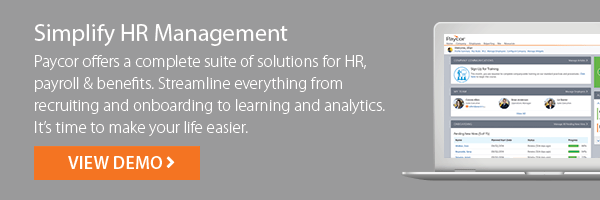In 2020, we went from a booming economy to record-breaking unemployment—HR leaders has a year unlike any other. In 2021, as the economy bounces back, it’s likely that more and more businesses with partner with independent contractors. It’s essential that these workers are properly classified.
One thing you definitely can’t ignore: In 2021, pay to independent contractors will be reported using a revamped 1099-NEC (that stands for Non-Employee Compensation).
Employees vs. Independent Contractors
Aside from taxes, the biggest difference between employees and contractors is the level of control the employer has over the worker.
Typically, an employer that partners with an independent contractor defines the scope of work but doesn’t have control over how, where or when the work is completed. Because the independent contractor often uses their own tools and equipment, expenses aren’t usually reimbursed.
Independent contractors are just that… independent. They’re either paid by the project or by the hour, they set their own schedules, they can work offsite, and unlike employees, their work usually isn’t key to the success of the business.
How the IRS Determines Classifications
The IRS considers three categories when classifying independent contractors:
- Behavioral Control
- Financial Control
- Type of Relationship
| Behavioral Control | Financial Control | Type of Relationship | |
| Employee | Has on-the-job training, set hours and guidelines for how their work should be completed. | The worker has guaranteed wages or salary. | Receives employee benefits (e.g., PTO, insurance, pension plans, etc.) |
| Independent Contractor | Sets their own hours and decides how the project should be completed. | Paid a flat fee per project or hour. | Contracted for a set time or number of projects. |
When determining the classification of an employee, keep this IRS quote in mind:
“There is no ‘magic’ or set number of factors that ‘makes’ the worker an employee or an independent contractor, and no one factor stands alone in making this determination. Also, factors that are relevant in one situation may not be relevant in another”.
The Two Major Penalties for Misclassifying Employees
- Fines and Back Pay: If the Department of Labor (DOL) determines that misclassification was unintentional, an employer may be hit with:
- $50 for each unfiled W-2
- 1.5% of the worker’s wages, with interest
- 40% of the worker’s FICA contributions (Social Security and Medicare)
- 100% of the employer’s FICA matching contributions
However, if the DOL determines misclassification was intentional, an employer may be responsible for:
- Maximum penalty of one year in prison
- Up to $1,000 in criminal penalties for each misclassified employee
- 20% of all employee wages paid
- 100% of FICA contributions for both employer and employee
- Benefits: If a misclassified employee files a complaint with the DOL, they may be eligible for benefits owed, including:
- Overtime
- PTO
- Health and welfare coverage
- 401(k) contributions
Monetary fines aren’t the only challenge you’ll have to overcome. Fines and class action lawsuits can significantly tarnish your brand image, making it harder to recruit top talent, retain clients and grow. Together, these penalties can threaten the survival of any small to medium-sized business.
Six Basic Tips to Protect Your Business from Misclassifications
- Ensure you have a written contract in place for each independent contractor explaining their classification.
- State in the contract that independent contractors are not entitled to employee benefits.
- Provide all independent contractors with Form 1099NEC as required by the IRS.
- Document the factors you used to determine the worker’s classification.
- Obtain a worker’s full name, address and Social Security number before you pay them.
- Review your employee handbook and job descriptions to ensure workers’ duties are in line with what their roles demand.
Keep in mind: The IRS will assist you in determining the classification of a worker. All you need to do is file Form SS-8. Until the IRS makes a decision, you should treat the worker as an employee.

Can a Worker Be Both an Employee and an Independent Contractor?
Here’s a puzzle: What if you employ a full-time worker and they also do the occasional contracted work for your business on the side? Can you pay this worker as both a W-2 employee and as an independent contractor?
The safest bet would be to classify and pay this worker entirely as an employee for all the tasks they perform. However, if the employee has an established outside business, and the contracted work doesn’t pertain to this employee’s duties, then you may treat the employee as an independent contractor for that specific work.
For example, if you have an employee who works as a bookkeeper but also has a side photography business, you may be able to hire them as an independent contractor for a photoshoot while paying them as an employee for their normal duties as a bookkeeper.
How Paycor Can Help:
We’re proud to keep more than 30,000 organizations up-to-date and compliant with federal and state employment laws. Interested in learning more? Consult with a Paycor representative.
*This content is for informational and educational purposes only and is not intended to be taken as legal advice. For legal advice, consult with your professional legal or tax advisor.










